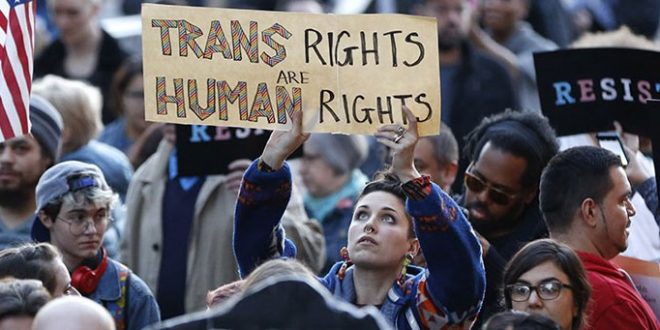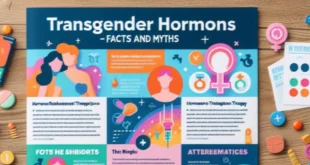Q: What does it mean to be transgender?
A: Transgender people are individuals of any age or sex who manifest characteristics, behaviors or self-expression, which in their own or someone else’s perception, is typical of or commonly associated with persons of another gender.
Q: Are there different types of transgender people?
A: Yes. There is great diversity among transgender people. Various terms are used to describe segments of the transgender community. Some of these terms are transvestite, crossdresser, bi-gendered, androgyne, transsexual, drag queen and male/female impersonator. Each of these terms describes a distinct type of transgender person. A detailed glossary of transgender terminology is available on request (see below).
Q: What causes a person to be transgender?
A: No definite answer can be offered to this question. Research suggests there is a biological basis for transgender behavior but to what degree is unknown. Transgender people manifest their condition at different stages in their lives ranging from infancy to old age. This leads to the observation that biology creates a capacity while nurture and individual choice may retard or accelerate the emergence or degree of transgender behavior.
Q: How many transgender people are there in the world?
A: No one knows what the population of transgender people is because there is no means of identifying and counting them. The evidence suggests that many transgender people hide their condition to avoid discrimination and abuse by others. However, transgender people are found in every society and culture, and in every country, from the most primitive to the most advanced. And, transgender people have been present throughout human history. Figures such as Saint Joan D’Arc, The Chevalier D’Eon, Lord Cornbury and Dr. Mary Walker are but a few of the transgender people to be found In the pages of history books.
Literary references to transgender people abound. In the latter half of the twentieth century the visible population of transgender people has increased into the millions worldwide. The evidence suggests that transgenderism is but another facet of the diverse human condition.
Q: Are transgender people considered to be disabled, sick or mentally ill?
A: Under the provisions of the Americans for Disabilities Act (ADA) transgender people are not considered to be disabled solely on the basis of their transgender status. Transgender people are not considered to be medically at risk by virtue of their status. Transgender people may be diagnosed by the psychiatric profession under the provisions of the Diagnostic and Statistical Manual of Mental Disorders, Fourth Edition (DSM-IV), American Psychiatric Association, 1994. However, the vast majority of transgender people do not require psychiatric diagnosis or treatment and are not regarded as mentally ill or incompetent solely by virtue of their transgender status. The inclusion of transgender people in the DSM-IV is subject to periodic review. Just as homosexuality was removed from an earlier DSM, it is possible that transgender people will not be included in future DSM’s.
Q: Can transgender people be treated or cured?
A: There is no known cure or course of treatment which reverses the transgender person’s manifestation of the characteristics and behaviors of another gender. Transgender people have at times been subjected to electric shock therapy, aversion therapy (applying physical pain to condition response), drug therapy and other procedures. None of these “cures” have succeeded. Many such “cures” have been painful and dehumanizing for the victims.
Q: Is transgender behavior sinful and against the teachings of the Bible?
A: An isolated passage in the Book of Deuteronomy (22:5) reads: “The woman shall not wear that which pertaineth unto a man, neither shall a man put on a woman’s garment: for all that do so are abomination unto the Lord thy God.” This passage is part of what biblical scholars refer to as the Hebrew Purity Code, a system of rules for social behavior and dietary consumption intended to “purify” the body and spirit in God’s eyes. In the broader context of the Purity Code this is a minor passage which is accompanied by prohibitions against intercourse with a menstruating woman, wearing clothing made of mixed fibers, sacrificing a blemished animal and remarrying a former wife. Taken together the prohibitions of the Purity Code amount to arbitrary cultural taboos as contrasted with the more profound precepts of the Ten Commandments. Biblical scholars and theologians warn of the danger of selective interpretation of the Bible in a way which upholds some passages while ignoring others and overlooking the broader context. Other authors point out that what “pertaineth unto a man” and what garments “pertain to women” have undergone continual change throughout history. Judged strictly by Hebrew standards the entirety of modern civilization would appear to violate the Purity Code.
Q: Are transgender people homosexual, bisexual or heterosexual?
A: The sexual orientation of transgender people may be homosexual, bisexual, or heterosexual.
Q: Are transgender people subject to discrimination and denial of their human rights? Are they subjected to hate crimes and bashing incidents?
A: Transgender people face discrimination in the workplace, in housing, in healthcare, in the military service, in prison and in the society at large. Many transgender people are unemployed or under-employed by virtue of their status. With the exception of a few jurisdictions the jobs of transgender people are not protected by law. Because of their “visible” behavior and choice of attire transgender people are frequently subjected to verbal and physical abuse by other citizens, leading in some cases to the loss of life. In the U.S.A. such hate crimes are currently not reported statistically as crimes perpetrated against transgender people.
Q: How can I help support the transgender person in my family?
A: First, offer your family member your unconditional love and support. Secondly, educate yourself about transgenderism and transgender people and their concerns. Thirdly, help your loved one educate and “come out” to other family members and friends who will be supportive.
From the PFLAG-Talk/TGS-PFLAG Virtual Library
critpath.org/pflag-talk/library.html – 2002
 Lesbian, Gay, Bisexual, Transgender & Intersex News Lesbian News, Gay News, Bisexual News, Transgender News, Intersex News, LGBTI News
Lesbian, Gay, Bisexual, Transgender & Intersex News Lesbian News, Gay News, Bisexual News, Transgender News, Intersex News, LGBTI News




